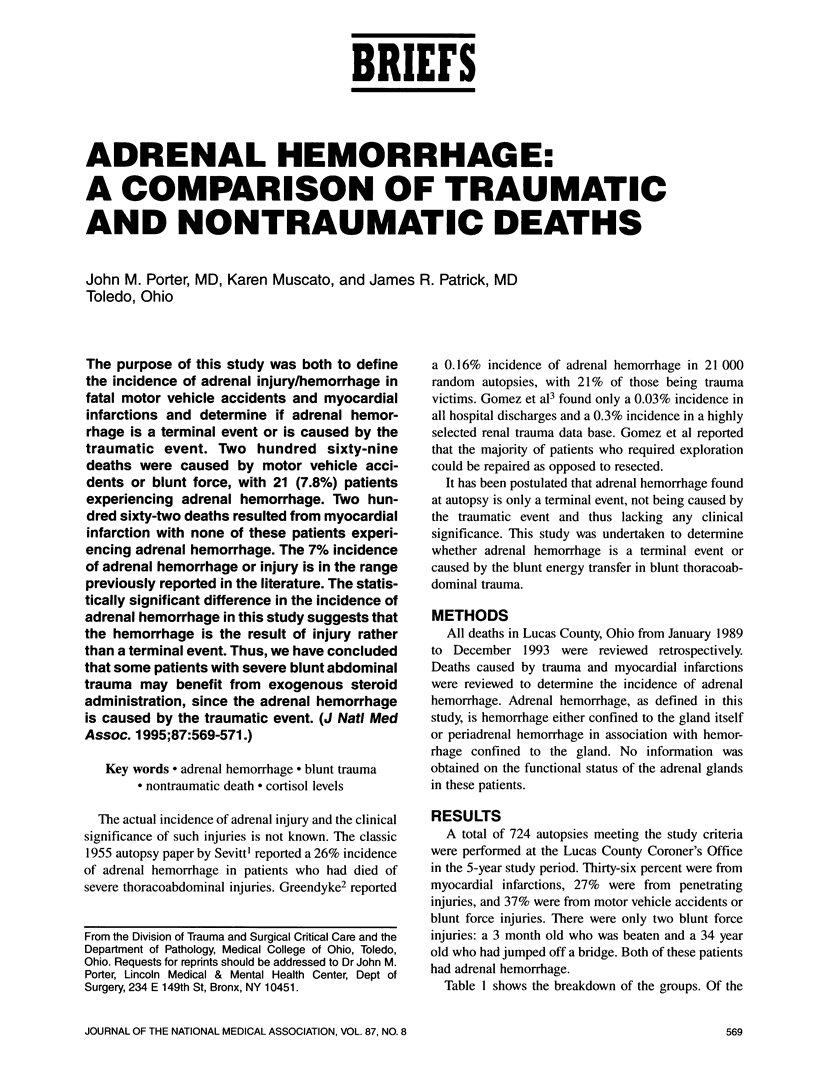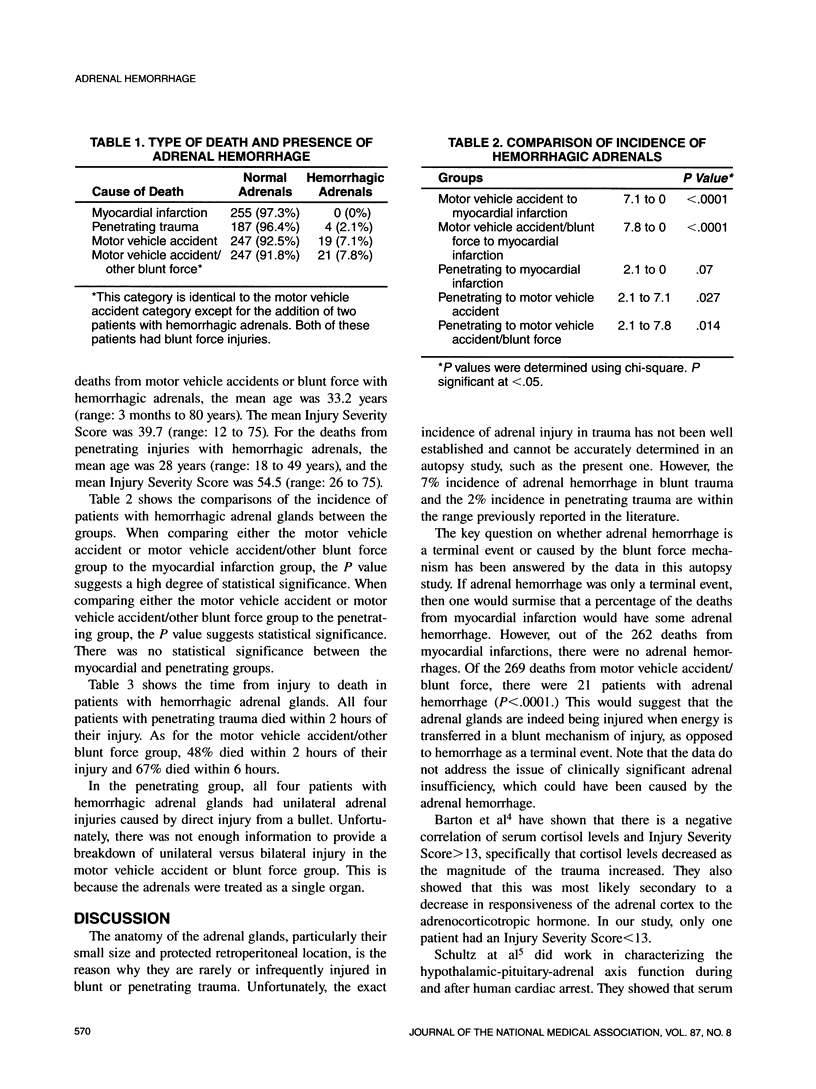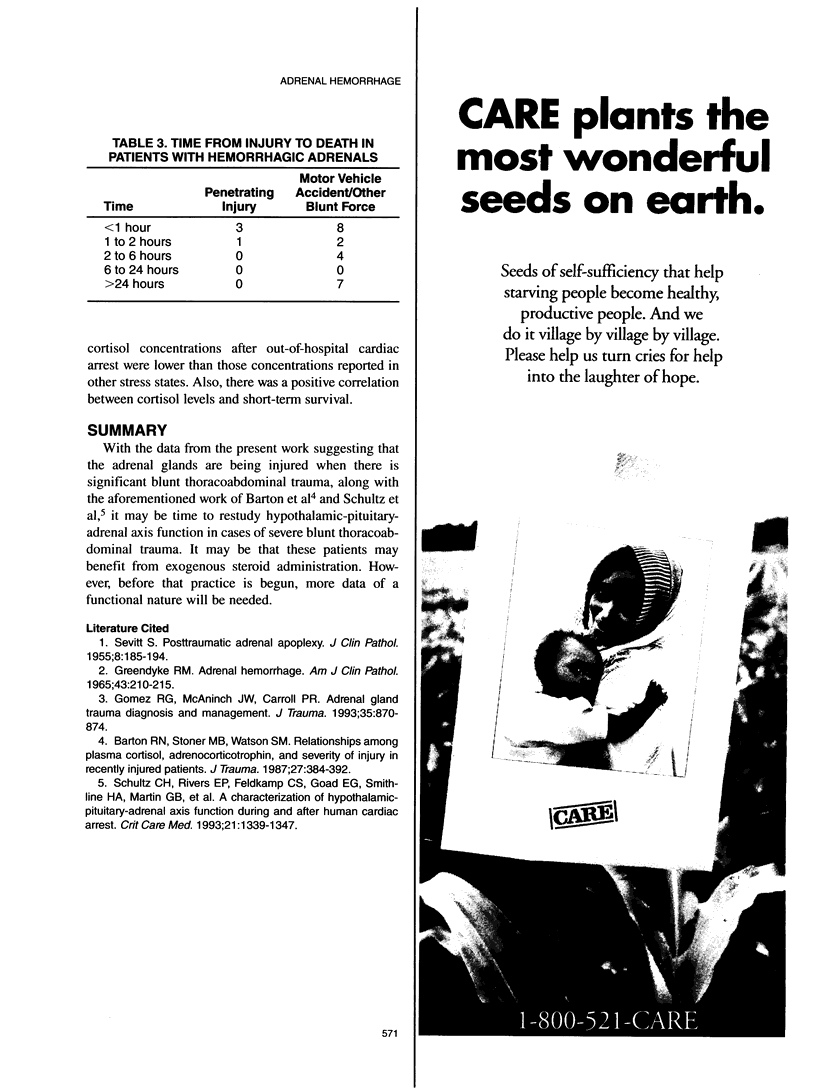Abstract
The purpose of this study was both to define the incidence of adrenal injury/hemorrhage in fatal motor vehicle accidents and myocardial infarctions and determine if adrenal hemorrhage is a terminal event or is caused by the traumatic event. Two hundred sixty-nine deaths were caused by motor vehicle accidents or blunt force, with 21 (7.8%) patients experiencing adrenal hemorrhage. Two hundred sixty-two deaths resulted from myocardial infarction with none of these patients experiencing adrenal hemorrhage. The 7% incidence of adrenal hemorrhage or injury is in the range previously reported in the literature. The statistically significant difference in the incidence of adrenal hemorrhage in this study suggests that the hemorrhage is the result of injury rather than a terminal event. Thus, we have concluded that some patients with severe blunt abdominal trauma may benefit from exogenous steroid administration, since the adrenal hemorrhage is caused by the traumatic event.
Full text
PDF


Selected References
These references are in PubMed. This may not be the complete list of references from this article.
- Barton R. N., Stoner H. B., Watson S. M. Relationships among plasma cortisol, adrenocorticotrophin, and severity of injury in recently injured patients. J Trauma. 1987 Apr;27(4):384–392. doi: 10.1097/00005373-198704000-00007. [DOI] [PubMed] [Google Scholar]
- Gómez R. G., McAninch J. W., Carroll P. R. Adrenal gland trauma: diagnosis and management. J Trauma. 1993 Dec;35(6):870–874. [PubMed] [Google Scholar]
- SEVITT S. Post-traumatic adrenal apoplexy. J Clin Pathol. 1955 Aug;8(3):185–194. doi: 10.1136/jcp.8.3.185. [DOI] [PMC free article] [PubMed] [Google Scholar]
- Schultz C. H., Rivers E. P., Feldkamp C. S., Goad E. G., Smithline H. A., Martin G. B., Fath J. J., Wortsman J., Nowak R. M. A characterization of hypothalamic-pituitary-adrenal axis function during and after human cardiac arrest. Crit Care Med. 1993 Sep;21(9):1339–1347. doi: 10.1097/00003246-199309000-00018. [DOI] [PubMed] [Google Scholar]


